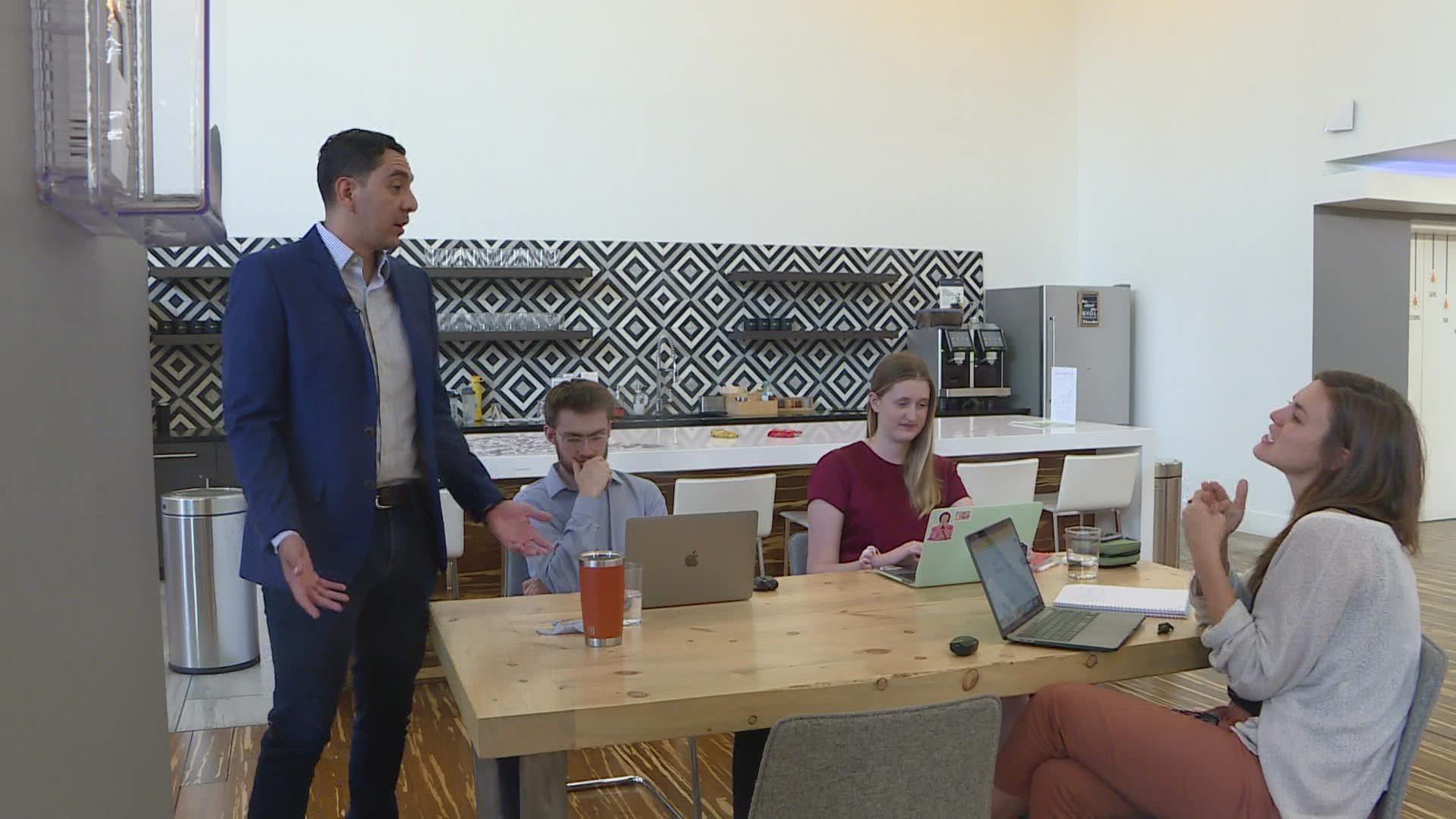DENVER — Reflecting on a journey isn't difficult for Uriel Berrum – and it shows as he described a family photo in his office.
“This is me and my 91-year-old abuelita. 'Mama Marta' is what we call her," he said.
He's a first-generation American whose parents immigrated from Mexico. Today, he's co-founder of ScholarLead and Effct, which works to provide public schools with technology to help manage enrollment and digital marketing.
"Back in 2014, I had no idea that it was going to transpire to be where I am now," he said.
He said what led him here was an important fellowship program that has helped more than 100 other people with a similar background.

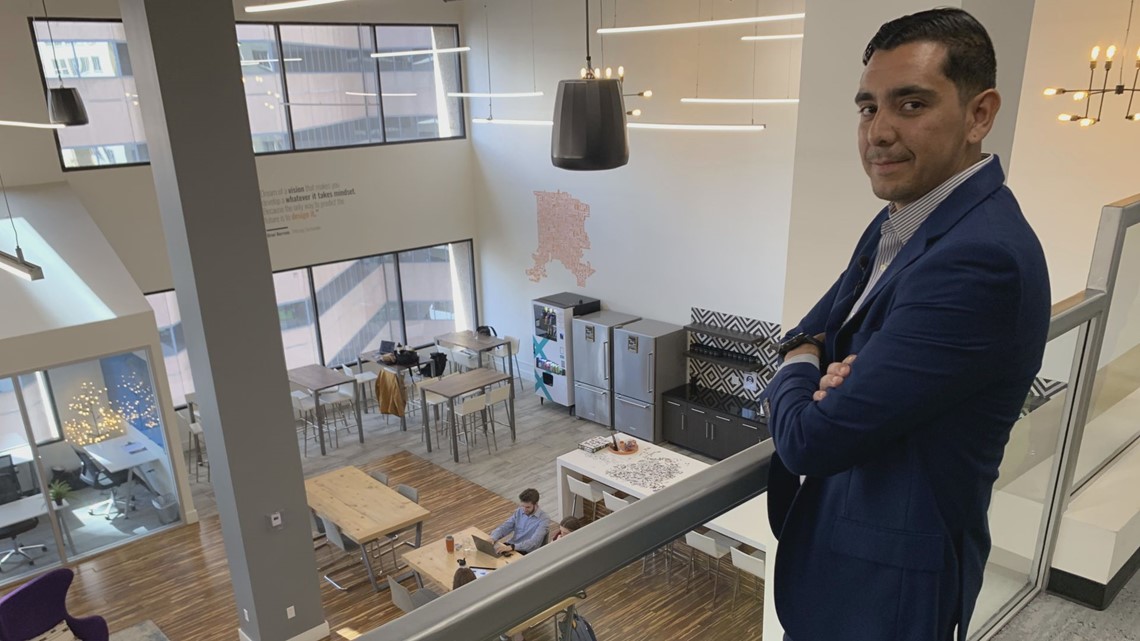
A journey stemming from heritage
Berrum said he remembers the questions he asked of himself when navigating college and getting internships.
"We were young kids. We were in college. We didn't understand exactly where we were going to go," he said.
In 2014, he was accepted into the Capitol Fellowship Program, which was spearheaded by the Colorado Latino Leadership, Advocacy and Research Organization (CLLARO).
Berrum was part of the program's second cohort, where he was able to work in a paid internship at the Colorado State Capitol.
"Like many of the other Capitol Fellows that I think participated in the program, we had never stepped foot in any government building that was official, like the Colorado State Capitol," he said. "This fellowship gave us the means to ask questions."

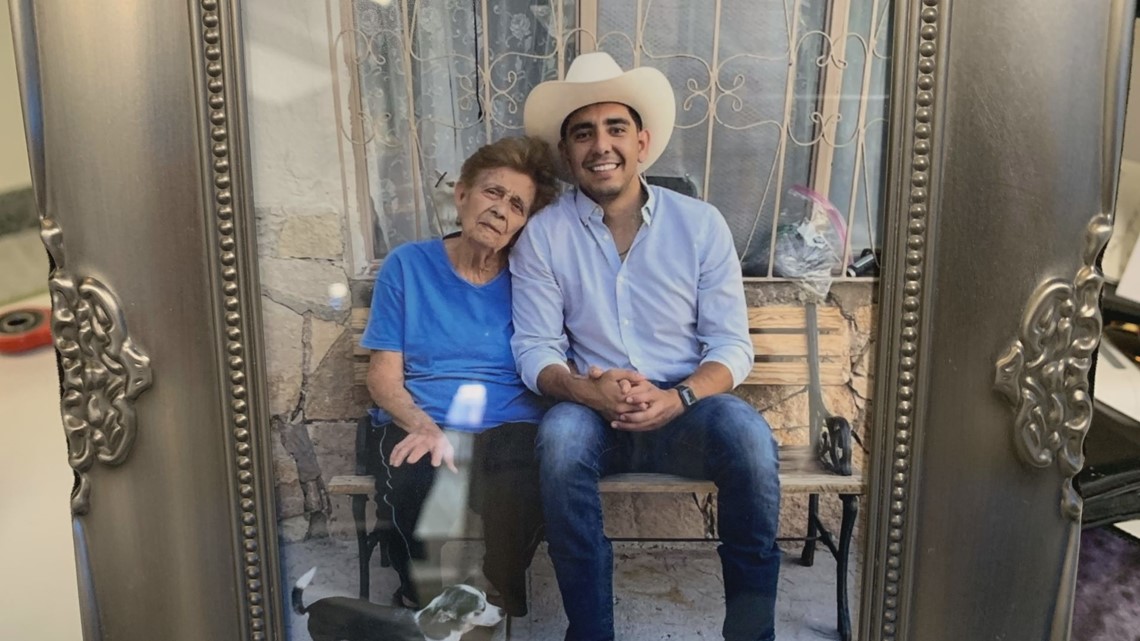
He added that he feels the fellowship was impactful for him, especially as a first-generation college student. He said it opened a channel of networking that he didn't see before.
"I see the fellowship definitely as a channel of access and doors opening for not just myself, but other folks who have done it," he said.
Overall, he said he believes it has propelled a domino effect of Latinos getting opportunities to not only get paid while going to school but also to have access to internships and resources.
"I think that the more we walk into who we are and into that identity of having a traditional Latino background or whether it is any other multicultural background, I think that makes us a more holistic community," he said.

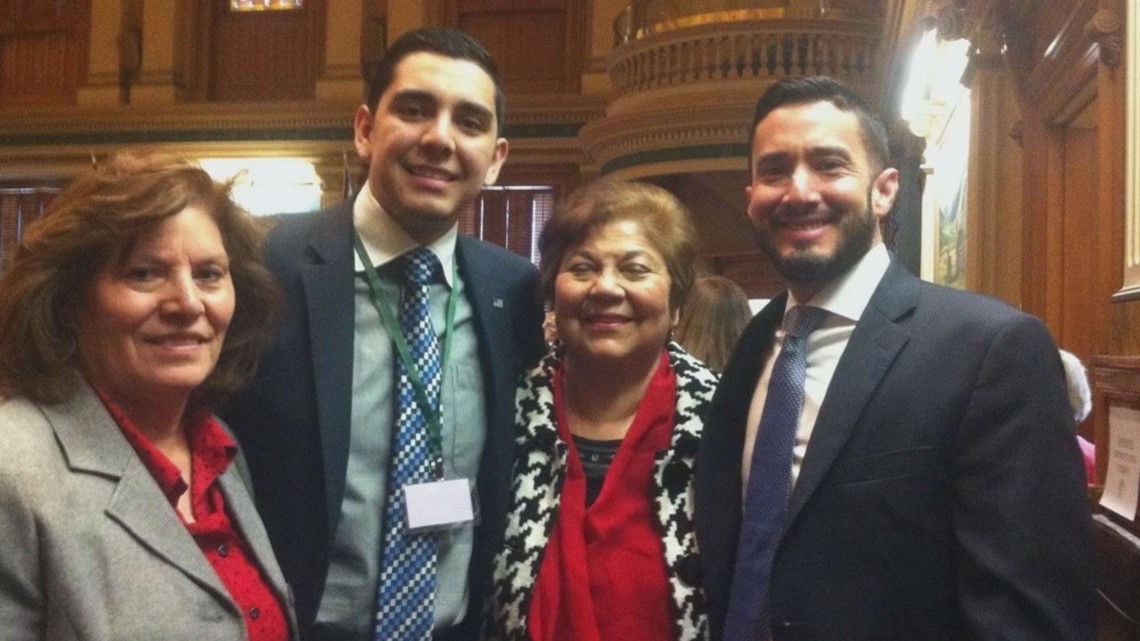
A pathway to success
As Alejandra Colmenero geared up for the 27th annual Bernie Valdez Awards breakfast ceremony, she took time to reflect on the impact the program has on the recipients, like Berrum.
"So these fellowships are awarded to mostly Latino students, but they are open to everyone that wants to apply," she said. "So folks from other marginalized communities can apply as well."
Colmenero manages the fellowship program and explained that the program started originally as a pipeline for Latino and African-American students to get leadership roles in the policy process.
"And so after the fellowship, it's such a transformative program because they go on to be legislative aides and to be lobbyist(s) or to really get in any career but advocate for themselves and for the Latino community, which is what we want, no matter what they do," she said.

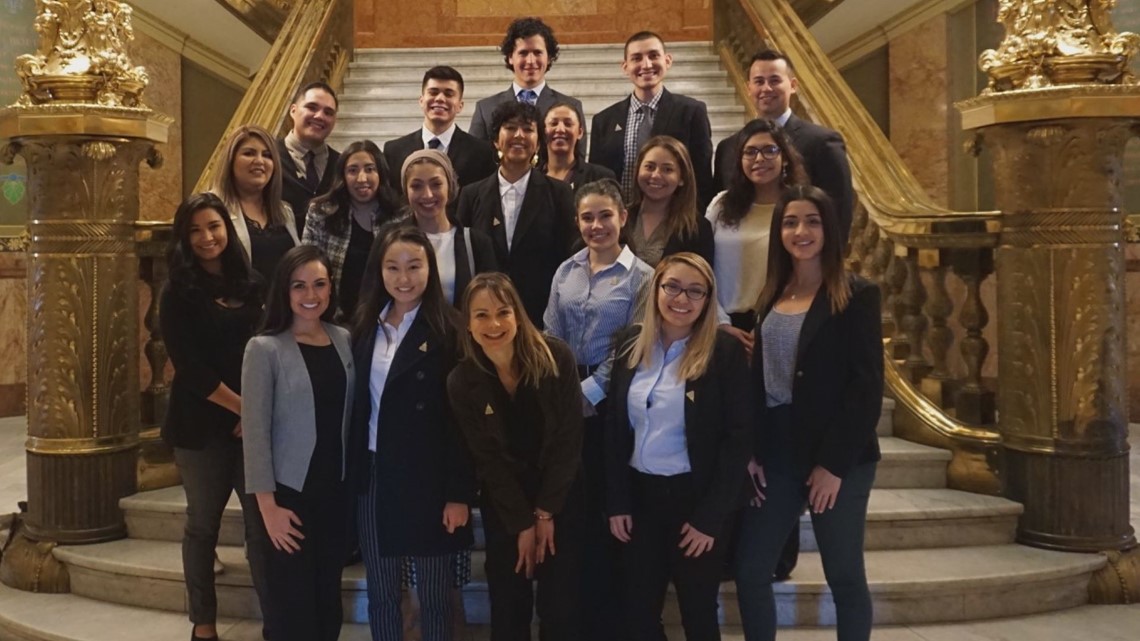
She said she believes the program has continuously built a network of alumni and other professionals in nonprofits.
Not only that, Colmenero acknowledged the barrier of being able to afford working in an internship or fellowship.
"[We] wanted to make sure that there was an affordable opportunity for Latino students and students from other marginalized communities to get these leadership roles," she said. "We need representation in the policy-making process in Colorado. We need folks that look like marginalized communities, right, to understand our needs. How can we thrive? What do we need to improve our lives? What do we need to be better parents to afford housing, to improve our education?"
As of this year, they've had 10 cohorts, totaling up to 122 alumni.
82% of the alumni are first-generation college students, 60% are first=generation Americans, and 86% are Hispanic or Latino, Colmenero said.
"So we need opportunities like this because the young students in college right now, they are the ones that are going to take on leadership roles in the future," she said.

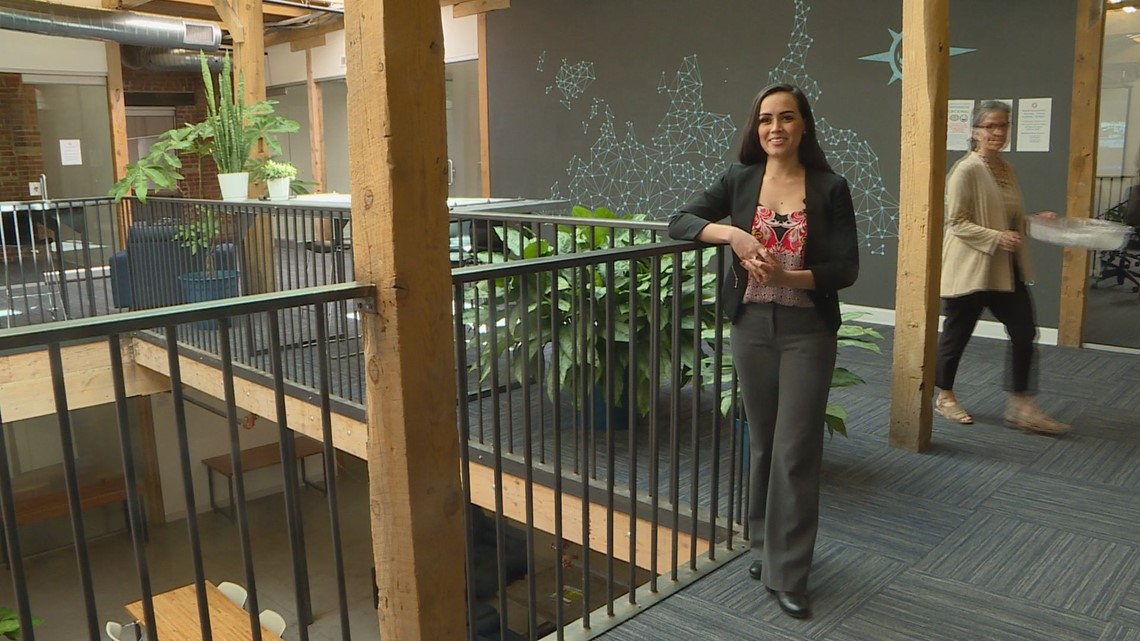
A unique award
A gloomy morning didn't stop the energy at a ballroom inside of the History Colorado Center in downtown Denver.
As Berrum found himself catching up with mentors and colleagues of his past, the crowd was asked to take their seats.
Joined by his mom and aunt, Berrum joined in the continuous applause as those who have helped him in his past took to the stage to be recognized during the 27th annual Bernie Valdez Awards Breakfast ceremony.
When Colmenero walked up, Berrum knew it was his turn to be recognized.
"After the fellowship, he used all his network, his resources that he gained from the fellowship to go onto his career, and he continues to be involved as a volunteer," Colmenero said of Berrum just days before.
He was awarded the first Distinguished Capitol Fellow award, which was made for the fellowship program's alumni.

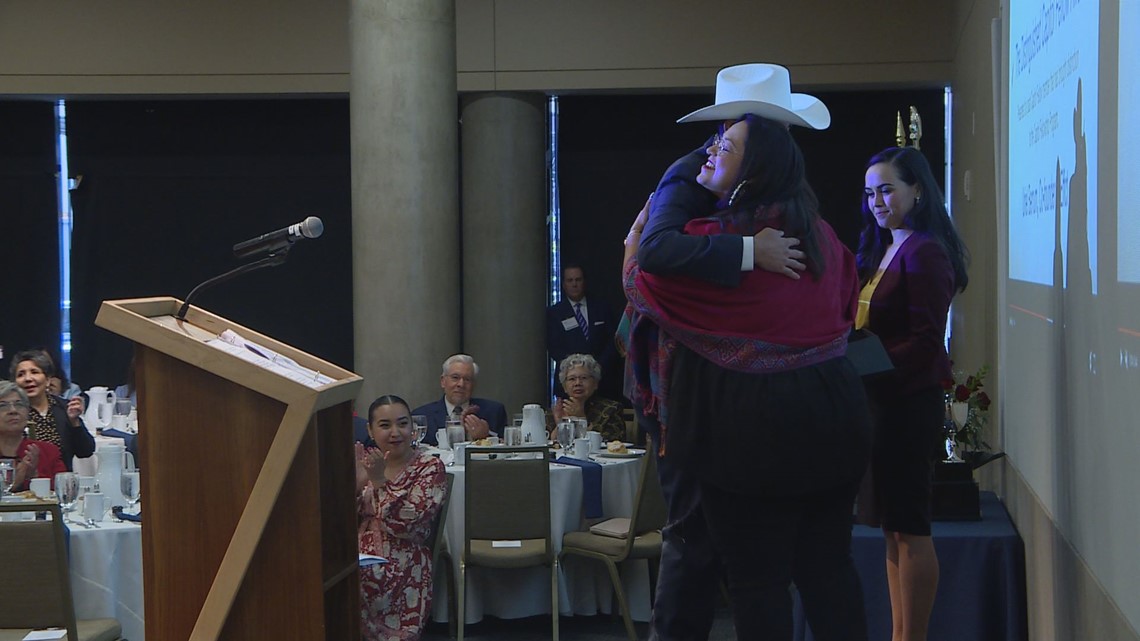
For Berrum, it's a full circle moment that he hopes resonates with Colorado's future Latino leaders.
"I think that representation solves a very big problem that is being able to be a young person and seeing someone who looks like you in positions that you may think are out of reach gives you permission to maybe imagine that one day that could be me. One day that could be them," Berrum said. "So I think the more that we can identify high performing young people that are black and brown Latinos in this state, to be able to propel them into these positions, the better society we are becoming."
To learn more about the program, click here.
SUGGESTED VIDEOS: Hispanic Heritage

